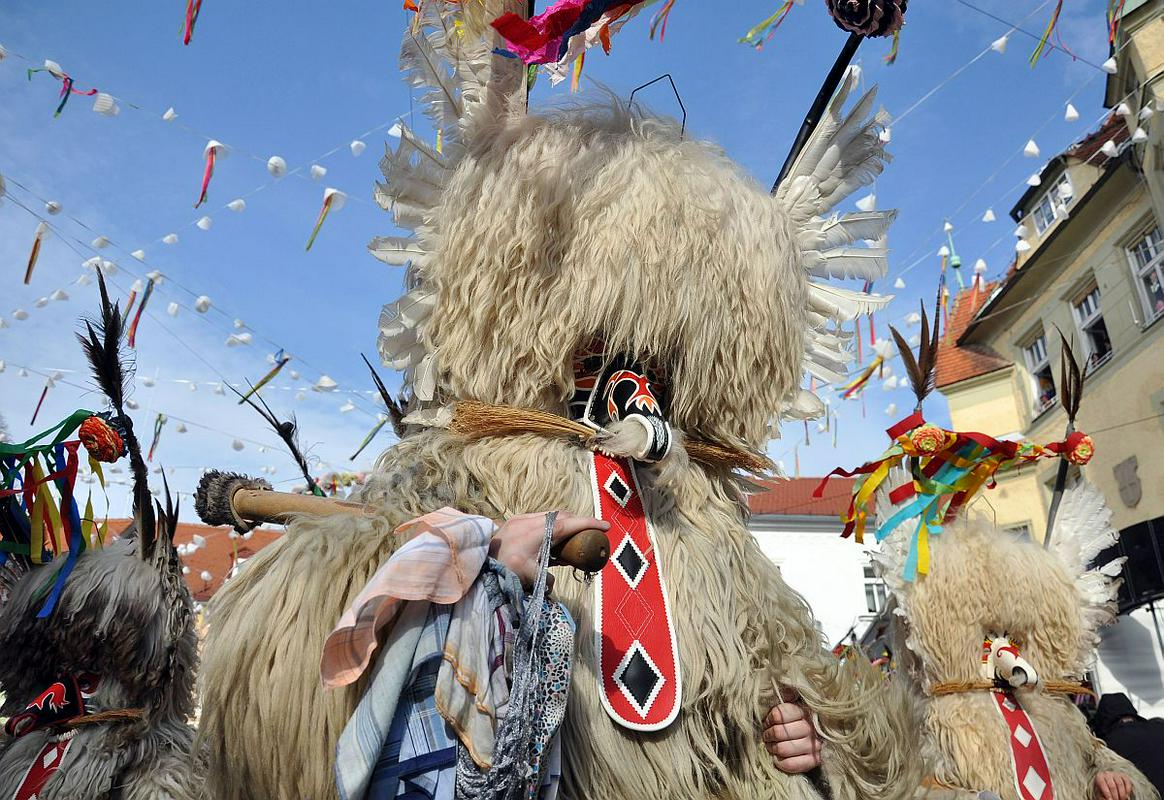
South Korea is hosting the 12th annual session of the Intergovernmental Committee for the Safeguarding of Intangible Cultural Heritage, which has taken 35 proposals into consideration this year. According to the committee, door-to-door rounds of the Kurent – one of Slovenia's most renowned carnival figures – bring together various expressions of the culture, its traditions, performing arts, natural science and traditional crafts. This is a new recognition for Kurents and preservation of intangible cultural heritage in Slovenia, and another step toward a better international recognisability of Slovenian intangible cultural heritage.
Door-to-door rounds of the Kurent are a Shrovetide custom and series of events that take place in the regions of Ptujsko and Dravsko polje, Haloze and Slovenske gorice. The Kurent is the most popular traditional carnival figure. Groups consisting of Kurenti and one or more devils run from house to house, form a circle in the yard and jump around the owners. According to folk beliefs, Kurenti have the power to chase away the winter and invite the spring to return to the land.
Ptuj had already succeeded in inscribing the carnival figure into the Slovenian registry of intangible heritage in 2012, with the Kurent later being declared as a living masterpiece of national importance. To emphasize the importance of the Kurent for the region, 20 societies that nurture this tradition founded the Federation of Kurenti Associations three years ago, uniting 900 members. All meet every year at "Kurentovanje", the largest Slovenian Shrovetide carnival that takes place in Ptuj and boasts up to 60,000 spectators from Slovenia and abroad every year.
Following in the footsteps of the Škofja Loka Passion Play, door to-door rounds have now become Slovenia's second entry on UNESCO's representative list of the humanity's intangible cultural heritage. The list originates from the Convention for the Safeguarding of the Intangible Cultural Heritage, which was signed in 2003. According to the Convention, intangible heritage comprises practices, representations, expressions, knowledge, skills – as well as the instruments, objects, artefacts and cultural spaces associated therewith – that communities, groups and, in some cases, individuals recognize as part of their cultural heritage.

































































